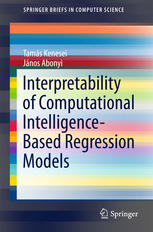

Most ebook files are in PDF format, so you can easily read them using various software such as Foxit Reader or directly on the Google Chrome browser.
Some ebook files are released by publishers in other formats such as .awz, .mobi, .epub, .fb2, etc. You may need to install specific software to read these formats on mobile/PC, such as Calibre.
Please read the tutorial at this link: https://ebookbell.com/faq
We offer FREE conversion to the popular formats you request; however, this may take some time. Therefore, right after payment, please email us, and we will try to provide the service as quickly as possible.
For some exceptional file formats or broken links (if any), please refrain from opening any disputes. Instead, email us first, and we will try to assist within a maximum of 6 hours.
EbookBell Team

4.8
94 reviewsThe key idea of this book is that hinging hyperplanes, neural networks and support vector machines can be transformed into fuzzy models, and interpretability of the resulting rule-based systems can be ensured by special model reduction and visualization techniques. The first part of the book deals with the identification of hinging hyperplane-based regression trees. The next part deals with the validation, visualization and structural reduction of neural networks based on the transformation of the hidden layer of the network into an additive fuzzy rule base system. Finally, based on the analogy of support vector regression and fuzzy models, a three-step model reduction algorithm is proposed to get interpretable fuzzy regression models on the basis of support vector regression.
The authors demonstrate real-world use of the algorithms with examples taken from process engineering, and they support the text with downloadable Matlab code. The book is suitable for researchers, graduate students and practitioners in the areas of computational intelligence and machine learning.